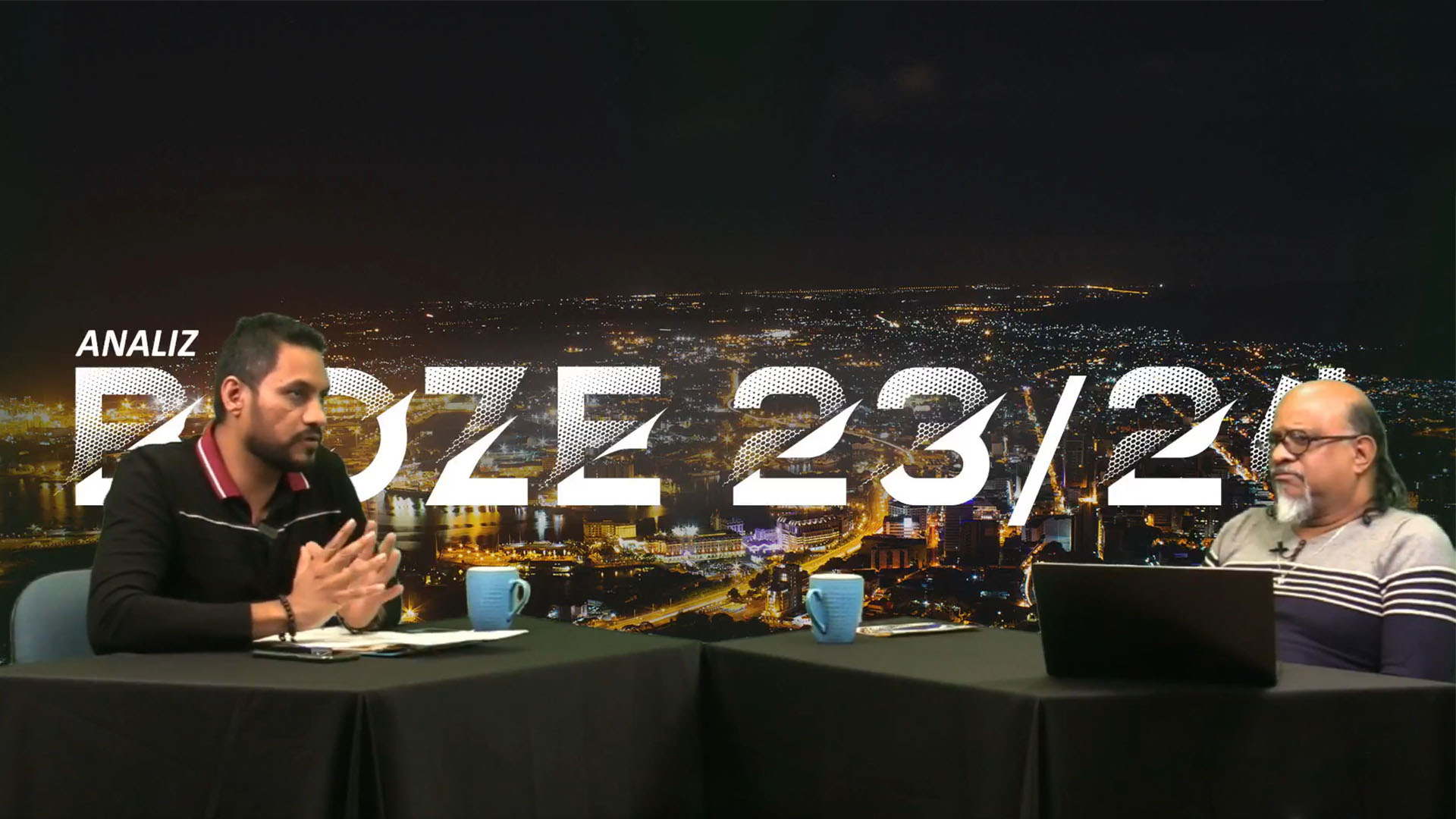On Monday 05 June 2023, few days after the 4th national budget of this government’s mandate was presented by the Minister of Finance, Economic Planning and Development, Renganaden Padayachy since his appointment in 2019, Ashvin Gudday received Ashok Subron from Rezistans ek Alternativ for his analysis. Although the some popular measures that seemingly address the ongoing loss of purchasing power of Mauritius like subsidies on some basic products, the “Revenu Minimum Garanti” of 15,000 rupees for workers, etc. Subron has been really critical of many aspects of this budget and as a trade union activist he has given his views on the implication of such a budget on the workers and working class.
For whom this budget caters?
Does this budget really have the well-being of all Mauritians at heart? Ashok Subron is in doubt. The trade unionist asks a lot of questions about the future of young people following this budget. For the latter, the answer is clear because apart from the measure of giving 20,000 rupees to those who have reached the age of 18 since January 2023, nothing has been done to provide a better future for the young generation. Mauritian youth kill themselves at work in order to be able to live in this society which favors cheap labor. Many youngsters are forced to work in call centers with late hours and sometimes with salaries that do not exceed 17,000 rupees.
Subron continues on his spear by saying that he finds it absurd that in 2023 the economic and political elites do nothing in order to get out of this economic model based on cheap labor and that it was unfortunate to say that it is becoming the norm today.
Concerning the “Revenu Minimum Garanti” of 15,000 rupees, the trade unionist insisted that the proprietors of large corporation will benefit more from this action since they will not have to disburse several billions to pay their employees.
Our interlocutor maintains that the 4th budget of this mandate is an act of perversion because it is the continuation of what was happening during the pandemic with the Wage Assistant Scheme where public funds was used to provide to the working class itself a salary. He insists that with this way of operating, the economic elite will continue not to spend capital to increase wages and it will once again be the population to bear the burden, since it is public money that will be used to top up the salaries of employees.
As such he insisted on the fact that this budget doesn’t deal with important issues such as the question of ecology, climate change, food sufficiency, and so on. This budget was designed to support large conglomerates and businesses which control the economy in Mauritius rather than the working class itself.
Indeed, the few measures announced to “relieve the population” were only done after having bleed Mauritians for two years post Covid with rising prices. Let us remember that the two years preceding the pandemic and the geopolitical war between Russia and Ukraine meant that the Mauritian household basket was increasingly impoverished as several basic foodstuffs only knew an unprecedented increase thus putting most Mauritians in a difficult economic situation. Certainly, this budget seems to bring gesture that relieve the population a little, nevertheless Subron asks that people do not forget what was done during 2021 and 2022, the soaring of food products and the high taxation of fuel.
In addition, Ashok Subron claims that this political model leads to an unparalleled autocracy, and this can be seen with the decision of implementing the local government bill which provides that the municipal elections can be postponed for two years. He qualifies this action as a breach of a red line because it will harm the country’s democracy.
“This budget aims to reinforce inequalities instead of promoting social justice since many of the measures introduced will be financed by public money instead of taxing the richest.”
Will these measures really help Mauritians? The answer is clear given the country’s economic situation. Inflation will cause that the money allocated to be quickly exhausted since despite the subsidies been maintained on several articles, the cost of life remains extremely high.
Last but not least, Subron make a call to the Mauritian youth not to fall into fatalism, especially when seeing all that is happening in the country. For him, the young people can make things happen and it is by getting in motion that change occurs.
“To put Mauritius back on track, we must firstly eliminate this economic model which has plagued society for several decades because it represents a real threat to the future generation. Cheap labor remains a practice that over the years has become the norm and if this continues, we will witness a huge brain drain in the Mauritian society.”


